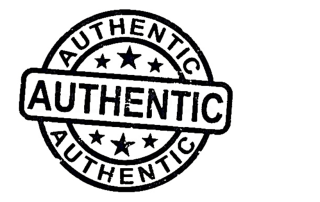Irresistible Marketing for Start-Ups I (+ Free Download)
Leaders, Some of you might have stepped out of your ‘safe’ corporate careers to start your own businesses. Some of you might only have played with that thought … . Let me guess – the uncertainty the new environment and the transition presented made you feel uncomfortable, right?! It is hard to create a sense of safety and trust for your clients if you are not feeling it inside. Who would feel attracted to a person or an organization that communicates from a place of fear? What can you do to manage the ambiguity? To be successful in business today you just need to be good at dealing with ambiguity. It is a critical business skill to be able to respond with confidence and adaptability. You can manage ambiguity if you can make decisions based on the information you have, even if that isn’t the whole picture cope with uncertainty [...]
Online-Marketing for Start-Ups – How to Reach your Clients
Leaders, You plan to start you own business? – Great. Congratulations! You have a bunch of ideas, already a business plan and you are just about to start? Perfect! Have you thought about how your prospect clients will find you amongst the many different other services and products out there? No?! Ok, then your time is worthwhile reading this article, because even the best ideas will not make any money, if nobody knows about them. First of all, you can only get visible in Google, YouTube or other search engines, if you provide good content (or invest money in advertisement like Google AdWords)! Search Engine Optimization (SEO) is not anymore about being ranked for any keyword you want. Google shows results based on what is best for the user. The question is, what exactly is that? Think about your own search behavior, e.g. when you want to buy a new [...]
A Leader’s Role in Building a Healthy Organization [with Download]
Leaders, There is not one single trait that characterizes an extraordinary executive. A lot of research has been done about it, and yet, it remains ambitious to try to boil it down to a distinctive set of characteristics. What we know from research and from my own experience working with leaders in start-up and multinationals is that you need great answers to the “Who” (or “Why”), “What” and “How”; or in other words your identity – both from an organizational and an individual perspective. I remembered a book that I very much enjoyed reading: “The Four Obsessions of an Extraordinary Executive” by Patrick Lencioni. The author presents two corporations in his leadership fable: Greenwich Consulting, led by Vince Green, and Telegraph Partners, led by Rich O’Connor. Their approaches to management and leadership couldn’t be more different. The key focus of the book is with Rich and his leadership team at [...]
Authenticity Cliff-Hanging: True or False?
Leaders, Are you genuinely expressing who you really are? Do you reveal your deepest values, convictions and aspirations in your interactions with others? On a scale of 1 – 10 (10 = constantly high on your radar), how much do you appreciate the goals of your organization and the needs of your colleagues and workforce? At its heart, authenticity is about practicing what you preach; being totally clear about who you are and what you do best. Being authentic means being honest and true to who you are, what you do and whom you serve, having a credibility in one’s words and behavior, and an absence of fakery. In an environment in which more human elements matter it creates value and benefits for your followers as well as improving your business. Authenticity builds your identity and image into something influential gives gravitas to yourself and substance to [...]
Advice from Kids: Developing a Learning Mindset
Leaders, We are all students and teachers at the same time. This principle becomes most apparent when I speak with my two nieces (7 and 9). I just visited them –we had a lot of fun in an indoor playground, shared thoughts and opinions. My big niece has always wanted to become a veterinarian, she loves their dog and all animals; the little one is still considering various options, e.g. forensic doctor, director, or singer. It is amazing how curious they are and how they explore every aspect of their world in a playful and fearless way. They are my role models in this regard. On a scale of 1 to 10 (10 being highest), how playful and fearless are you today? Here is what we spoke about and what I learned: Advice from Kids I – On Happiness When I asked my nieces what made them happy, they burst [...]
Managing Stress and Building Resilience: Quick Tips
Leaders, Resilience is that indescribable capability that helps us bounce back from adversity and leadership setbacks – qualities that are crucial in today’s business environment. Building and strengthening your resilience muscle takes time, attention, tenacity and patience. It also requires a decent amount of self-awareness that enables you to realize when you are on the verge of becoming out of balance. This April, the Chartered Financial Analyst Institute asked me to support their career services center at their annual conference, held in Frankfurt for the first time. Part of the deal was an interview with me on ‘stress and resilience’ that you can watch below. The ten resilience boosters reflect the necessity to adopt a growth mindset, to center regularly, and to seek support. 10 Boosters: Building Resilience Tap into your inner resources and stay calm. Maintain a clear sense of purpose for long-term goals and priorities. Nurture relationships: your [...]






